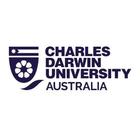Bachelor of Laws (Graduate Entry)
- Posted by Charles Darwin University
- Home
- Courses
- Charles Darwin University
- Bachelor of Laws (Graduate Entry)
Bachelor of Laws (Graduate Entry)
The Bachelor of Laws (Graduate Entry) provides you with the academic foundation for admission to legal practice. In that context, the course provides you with knowledge of the law, legal processes and legal principles and cultivates a capacity for legal research, analysis and communication. There is a focus on the…
Categories
COURSE DESCRIPTION
The Bachelor of Laws (Graduate Entry) provides you with the academic foundation for admission to legal practice. In that context, the course provides you with knowledge of the law, legal processes and legal principles and cultivates a capacity for legal research, analysis and communication.
There is a focus on the analysis, interpretation, evaluation and application of various sources of legal authority to construct solutions to legal problems. The course also deals with theoretical perspectives on the law and encourages an appreciation of legal issues of special significance to the Northern Territory, including Aboriginal legal issues.
This Bachelor-level course has an entry pathway for students who already hold an undergraduate degree. The course structure and content is the same as the standard Bachelor of Laws, however the course title is distinguished by the inclusion of `Graduate Entry’ to place distinction on a graduate’s multiple qualifications.
Professional recognition
The Bachelor of Laws (Graduate Entry) is accredited by the Legal Practitioners Admission Board of the Northern Territory and provides the academic foundation for admission to legal practice in the Northern Territory and elsewhere in Australia.
To be admitted to legal practice in Australia, you must also complete the Graduate Diploma in Legal Practice (GDLP). This can be taken through the College of Law, Sydney, and completed online.
REQUIREMENTS
Successful completion of a recognised bachelor degree, master’s degree, PhD (other than law) or equivalent international qualification.
English language requirements
CDU English for Academic Purposes 4 (ZEAP40): Successful completion of EAP004 English for Academic Purposes 4
IELTS Academic Module: A minimum overall score of 6.5 with no band less than 6.0.
Cambridge Advanced English (CAE): A minimum overall score of 176, with no skill below 169.
Common European Framework Certificate of English Proficiency: A minimum overall grade of C1, valid for three years from the date of the test to the date of commencement at CDU.
Pearson Test of English (PTE) Academic module: A minimum overall score of 58 with no score lower than 50.
TOEFL Internet-based Test (iBT): A minimum overall score of 79 with a minimum writing score of 21.
EDUCATIONAL INSTITUTION
Charles Darwin University (CDU) is a truly unique institution, headquartered in the Northern Territory and spanning the whole country with delivery sites in cities like Brisbane, Darwin, Perth, Melbourne and Sydney and regional hubs such as Alice Springs, Katherine and Palmerston. The university’s multi-campus, virtual and online expertise, course profiles, delivery methods, research activities and operation, result from a commitment to the regions in which it operates. At CDU, international students will benefit from the university’s relatively smaller class sizes and a low student-to-teacher ratio that is in the range of one teacher to every 15-20 students. International students have 11 campuses and centres located around Australia where they could be studying, from tropical Darwin, the outback of Alice Springs or in one of Australia’s more famous cities, Sydney. CDU is ranked number four among Australian universities for undergraduate employment outcomes.
Charles Darwin University (CDU) is a truly unique institution, headquartered in the Northern Territory and spanning the whole country with delivery sites in cities like Brisbane, Darwin, Perth, Melbourne and Sydney and regional hubs such as Alice Springs, Katherine and Palmerston. The university’s multi-campus, virtual and online expertise, course profiles, delivery methods, research activities and operation, result from a commitment to the regions in which it operates. At CDU, international students will benefit from the university’s relatively smaller class sizes and a low student-to-teacher ratio that is in the range of one teacher to every 15-20 students. International students have 11 campuses and centres located around Australia where they could be studying, from tropical Darwin, the outback of Alice Springs or in one of Australia’s more famous cities, Sydney. CDU is ranked number four among Australian universities for undergraduate employment outcomes.

